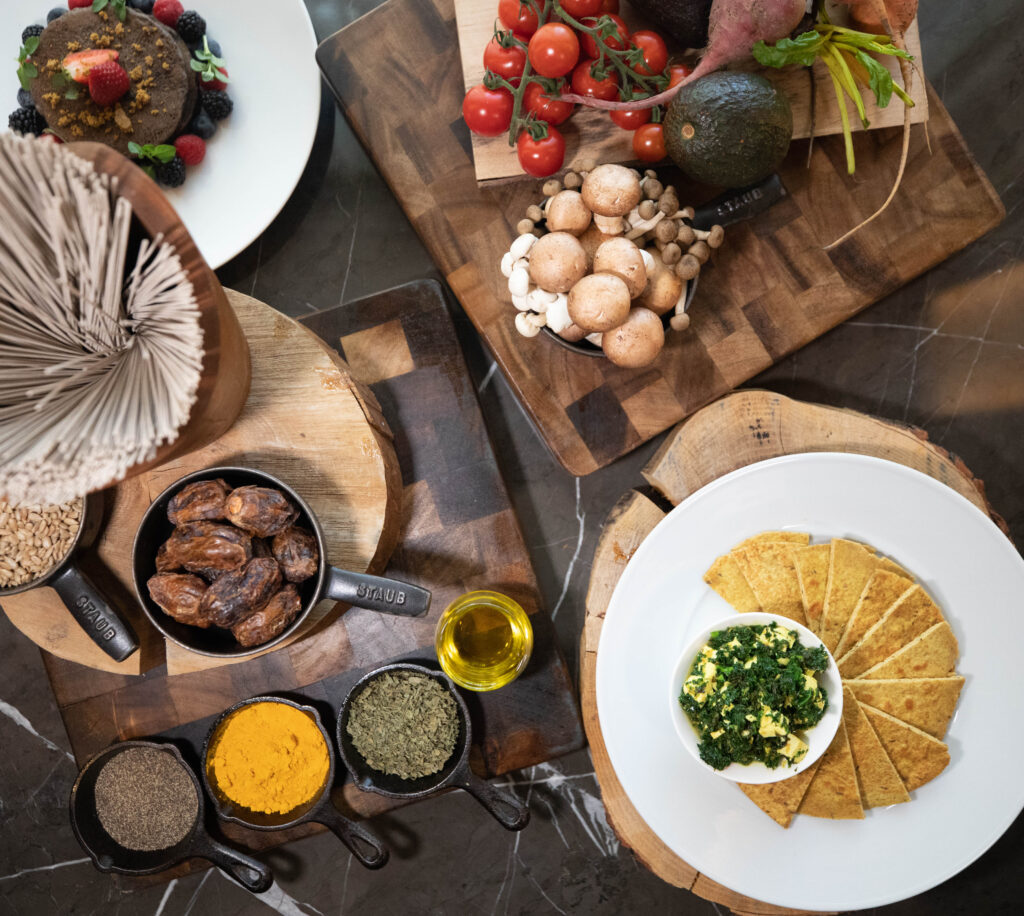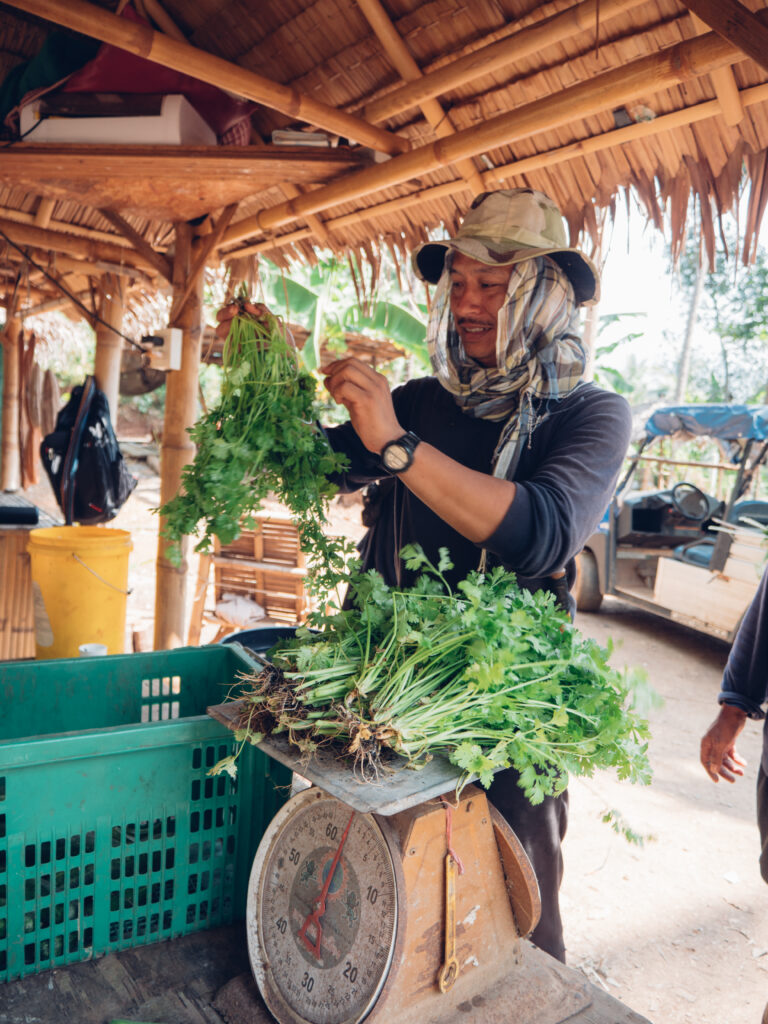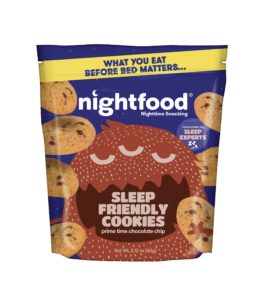“Let food be thy medicine and medicine be thy food.” The quote, attributed to Hippocrates, known as the father of medicine, holds up today as it did back then—when cold-pressed juices and acai smoothies weren’t readily available at the corner shop. The world has evolved much since the time of Hippocrates and now people are trying to take better care of themselves as they age, and food is a gigantic part of the health journey. The hotel industry has picked up on this and have created programs—even their own brands—that key in on this growing segment, which has become less afterthought and more compulsory.
According to the Global Wellness Institute (GWI), a nonprofit organization that educates the public and private sectors about preventative health and wellness, the global wellness economy was valued at $4.9 trillion in 2019, before falling to $4.4 trillion in 2020, in the wake of the COVID-19 pandemic. However, GWI now predicts—perhaps in large part due to the pandemic—that the wellness economy will grow here out 9.9% on average annually, with the wellness economy reaching nearly $7 trillion by 2025.
As a percentage of the entire global wellness economy, healthy eating, nutrition and weight loss accounts for $946 billion, second only to personal care and beauty. The healthy eating, nutrition and weight loss sector grew from $912 billion in 2019 to $946 billion in 2020, according to the GWI, one of the only wellness sectors that maintained a positive growth trajectory during the pandemic.

FOOD FOR THOUGHT
If food is the way to a man’s heart, nutritional food is a way to not clog it up. The hospitality industry is changing the way it approaches healthy F&B and the hotel brands are helping lead the charge. Menu items and programs focus not only on physical wellbeing— weight, energy, heart health and more—but also on mental and spiritual wellbeing. Striking that is a balance and is as much about the goodness of ingredients as the calorie intake.
Mia Kyricos understands the landscape of wellness in hospitality as well as anyone. She is the founder of Kyricos & Associates, an advisory firm that provides brand strategy, business development and operational insight into wellness. Prior to starting her own company, she was SVP and global head of wellbeing at Hyatt.
She sees food as the next true focus for wellness, especially moving forward from the pandemic, when the focus was on cleanliness and hygiene. “Wellness, in general, has permeated the four walls of spa, fitness and pool and every brand is trying to figure out its take on it,” she said. “If you trickle down on the food and beverage side, there’s still not a clear map from A to B for a lot of hotels. It’s table stakes to cater to different dietary restrictions and so forth and across the board, people are much more aware and sensitive to what they’re putting in their bodies.”
Healthy, nutritional food isn’t just a product, it’s a story. As Kyricos pointed out, people are more conscious of where their food comes from and how hotels and restaurants source and deliver it. “Chefs and F&B managers are closer to their suppliers… and it doesn’t necessarily have to be an increase in cost, as long as they have a good handle on their supply chain,” she said.
One valuable residual effect of the pandemic is that it accelerated conversations about wellness that had historically been siloed, Kyricos said. “This used to be an HR conversation; ESG was more of a legal conversation; and DEI might have been a C-suite conversation. All of these things that are now touching wellness and the wellbeing of people are converging. You’re seeing a different way of talking about this,” she said.

BRAND BITE
The brands are. “Wellness and food and beverage often go hand-in-hand,” said Amanda Al-Masri, VP of wellness at Hilton. She cited Hilton’s 2023 trends report, which found that half of global travelers will seek travel experiences that align with their wellness goals and priorities this year.
“Travelers have been redefining what wellness means to them,” she continued, “with many adopting a more holistic approach and considering areas beyond the traditional gym and spa, such as sleep, recovery, mindfulness and nutrition.”
The Hilton report also found that more than two in five global travelers indicated they will be looking for healthier options to eat and drink as they travel, “so it’s safe to say that hotels need to consider guests’ well-being throughout all areas of the stay experience. Whether that means introducing more plant-based or sober-conscious menu options or putting sustainable, local sourcing at the forefront of the dining experience.”
Hilton is putting action behind its words. Consider its Homewood Suites by Hilton brand, which replaced 80% of high-calorie products, such as soda, chips and cookies, with more nutrient-rich and wellness-minded options in their new Suite Shops. This includes things like dried fruit, kombucha and organic frozen meals. Positive feedback is prompting Hilton to roll out a similar approach across all its brands.
Individual properties are also jumping on the wellness bandwagon. At Hilton Shillim Estate Retreat & Spa in India, the property’s menus are inspired by the Shillim Cooking School and Farm’s seasonal produce and hand-picked ingredients. In the EMEA, Hilton identified a number of diners who identify themselves as “reductarians” — those who reduce their meat consumption, with an emphasis on health.
Other food trends include plant-based products that are made to taste like proteins and, as Adam Crocini, SVP of global food & beverage brands, Hilton, noted, alternative milks, such as oat or almond, and those who have traded in alcoholic drinks for mocktails and low-ABV beverages.
“We know that food and beverage play a significant role in people’s travel plans,” said Tom Walters, SVP of food & beverage, Americas, Hilton. “Meeting our guests with what they are looking for not only results in positive feedback, but also positively impacts our bottom line.”
Peninsula Hotels launched its “Life Lived Best” campaign in the spring of 2022, which comprises three pillars: nutrition, physical fitness and mental Health. “Food and beverage play a very important role in [our] hotels and this campaign is a holistic approach, whereby guests can maintain all aspects of their healthy lifestyle,” said Baasim Zafar, executive chef at The Peninsula Chicago, which offers a plant-based menu available both in The Lobby restaurant and through in-room dining.
Luxury brands, like Peninsula, have discerning and discriminating customers; it’s up to these hotels to satisfy their tastes and whims. “Our clientele has always had an expectation for healthy options,” Zafar said, adding that there are increasingly more guests interested in vegan, gluten free and vegetarian options. “On a brand level, we believe that full-body wellness is a priority for guests now, more so than just a trend.”
As Zafar pointed out, offering these items typically comes with a higher price tag, depending on where you are sourcing from. Consider vegetables, which he said he has seen the quality going down. “We have sourced through private farms, which can be very expensive,” he said.
Zafar listed three trends to watch for in 2023: nostalgic tastes and retro flavors that remind people of their past, especially when they are health-conscious options; coffee/caffeine-free alternatives; and a further lean into local produce, especially for climate-conscious diners.
One company that is betting on the growing trend of healthier snacking is Nightfood, which offers sleep-friendly products, from ice cream to cookies, typically found in a hotel’s marketplace or sundries shop. The products generally have less sugar, less fat, fewer calories, more protein and Sean Folkson, Nightfood’s founder and CEO, is banking on hotels and customers eating it up.
Healthier eating and snacking, especially in the midscale segment, still has a learning curve, and Folkson believes it’s up to the brands to educate owners on the benefits. “Owners are going to do it if the brands start standardizing it,” he said.
Until then, he’s competing for shelf space with the likes of Klondike bars, Twizzlers and Oreos, but if hotels are in the business of providing sleep, Nightfood fits right in, Folkson argued. “We don’t expect the hotel to choose between traditional snacks and Nightfood snacks, because I think that’s unrealistic,” he said. “We expect the hotel to choose to offer them both and let the guests choose.”

